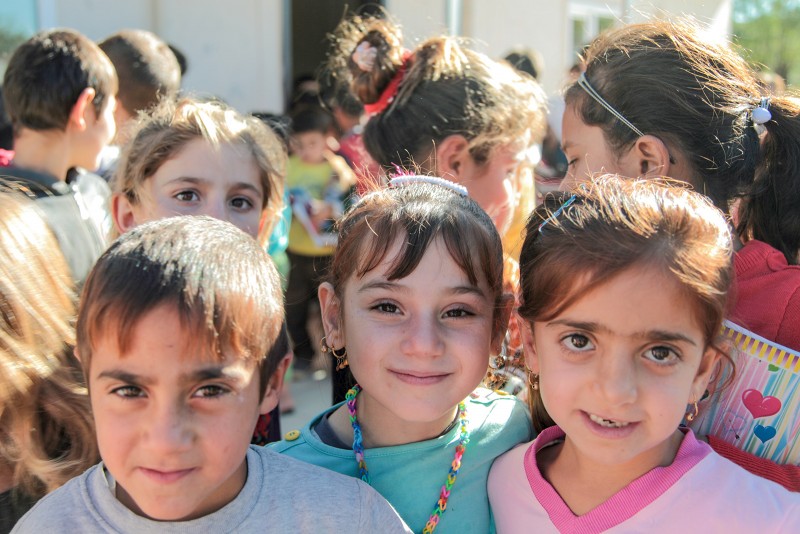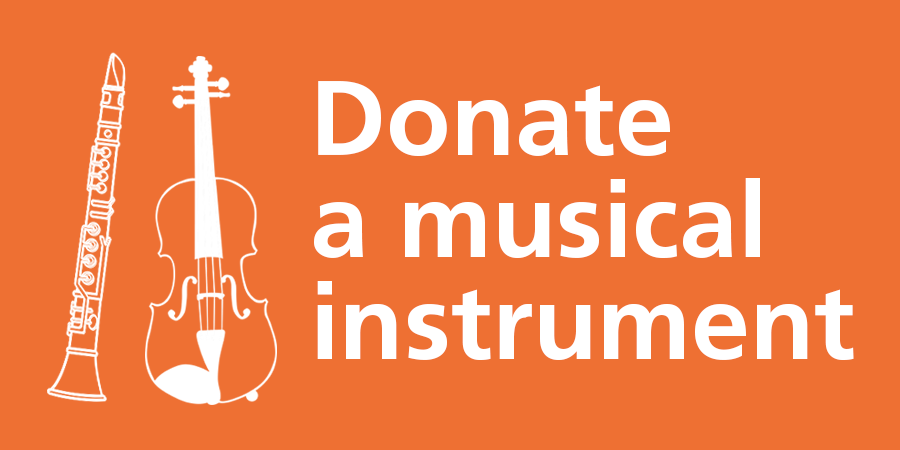El Sistema Greece was launched in August 2016. We spoke to founder Anis Barnat, who is working with refugees in Athens and Lesbos.
Key Information:
Number of children: About 500 by the end of 2016, and 2,000 by 2017
Countries they are from: Syria, Afghanistan, Palestine, Pakistan, Iraq
Ages: 4 to 18 years old
Taking place at: Island of Lesbos, and Lavrio and Skaramagkas refugee camps, near Athens, Impact Hub Athens for refugee communities living in the city centre, with expansion plans through the Attica region
Key organisations and artists: Impact Hub Athens and Athens State Conservatory
Music: Choirs to start with, followed by ensemble instrumental
Contact: Anis Barnat (Website, Email, Facebook, Twitter)
Tell us about the origins of the project…
El Sistema Greece was born as an idea for supporting the refugee communities with music after I worked as a volunteer on the island of Lesbos last summer. Sophie Lamprou and the Impact Hub Athens team in Athens had been progressing the same idea since 2015, as the refugee and financial crisis in Greece was escalating. We joined forces for the common purpose of bringing people together through music and building confidence and opportunities for the migrants.
What is the vision for the project?
To heal the emotional injuries of children in the refugee camps regardless of nationality or religion, raise their self-esteem and spirits and to assist with their integration into society by making music and beauty available to them through structured artistic educational group activities in a peaceful setting. The vision is also to provide this music education programme to the maximum number of children, not only in refugee camps but also in mixed neighbourhoods.
How would you describe the project?
El Sistema Greece is starting with choral classes and, as soon as possible, adding orchestras. The voice is a natural instrument that we all carry with us. It provides an instantaneous and vital way to make music and create a “community feeling”.
The classes will be given by Greek music teachers and by members of the camps’ communities. The international repertoire we have chosen, including by asking the children themselves for songs they know, will provide a way of getting to know each other’s traditions and better understanding of each other’s cultural and individual backgrounds. As part of this we aim to teach the children and young people values like leadership, solidarity with peers, self-esteem and capacity to work as a team. We also plan to involve Greek children, to offer underprivileged families a chance to participate in art, beauty and community life. This widened access is a fundamental part of the success of the project.
What has happened so far?
In the summer of 2016 the new El Sistema Greece’s pedagogy was designed with the help of El Sistema Venezuela, and then discussed with pedagogues and teachers throughout the world. At the same time, discussions in Greece with the Athens State Conservatory and Polyphonica Choir developed. Since then, other partnerships have been created to form a diverse community of teachers to receive the pedagogical training.
On 1 November 2016, the first music lessons started in the Skaramagkas camp close to Athens, and on 4 November on Lesbos island. Next up is Lavrio camp close to Athens, with more sites in the planning.
This month, we are proud to welcome Lourdes Sanchez, Director of the Youth Choirs at El Sistema Venezuela, who will introduce the new El Sistema Greece teachers to El Sistema practice, give master classes and lead choral sessions with children in the camps in Athens and Lesbos.
What are the major challenges?
The first is the uncertainty about the groups - depending on administrative processes of asylum we will have some children that will leave from one day to the next. Our pedagogy is ready to face this challenge and not consider the children as a fixed or regular group.
The other challenge is language. Of course, music is a universal language but we need to deal with groups of children that don’t speak the same language and don’t have the same cultures.
And like any other project that involves a new group, discipline is a challenge. With regular and structured lessons we think that we will establish enjoyable and constructive educational activity for the children.
What successes have given you encouragement so far?
The trust of our partners, from Greece but also internationally, and from institutions and individual artists. Their support is very important and every day gives us the necessary encouragement in our endeavour.
Then of course, the first lessons we held in the camp brought a lot of hope and strength for our team to continue its efforts.
We know it is early days but what advice do you have for people or organisations seeking to set up similar projects with refugees?
Local support is the most important. A good idea will only stay an idea if you don’t have the official support and trust of the main partners in the country where the project happens.
Photo credit: Angel Ballesteros





